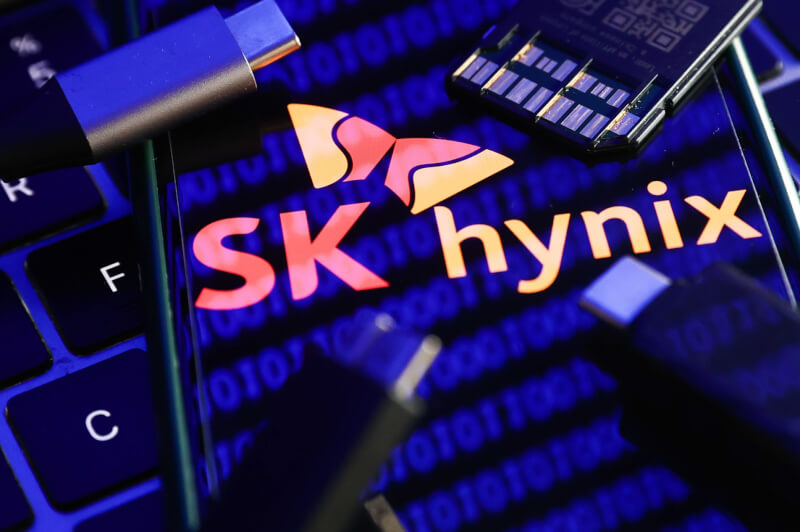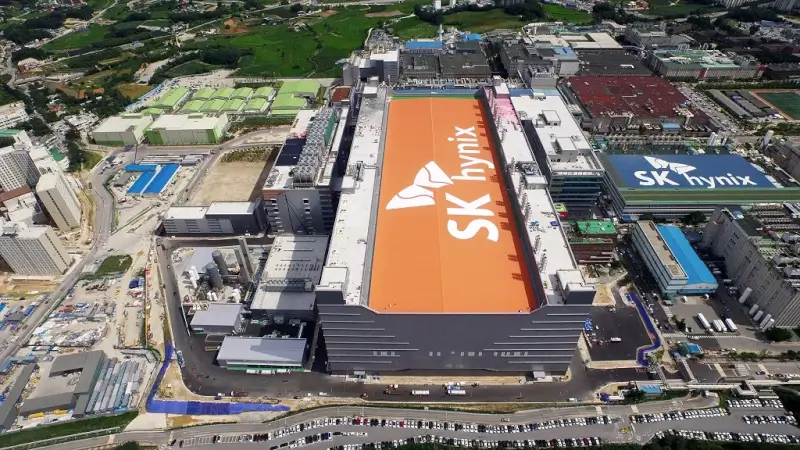SK Hynix reverses losses with AI demand

SK Hynix attributed the strong performance to an "increase in sales of AI server products, supported by the company's leading position in AI memory technology, including high-speed memory".
At the same time, the company has made great efforts to increase profitability. South Korean memory chipmaker SK Hynix on Thursday reported net income of 1.92 trillion South Korean won ($1.39 billion) in the first quarter, up sharply from a loss of 2.58 trillion won in the same period a year earlier.
This was the first positive earnings since the third quarter of 2022. SK Hynix recorded net losses for five consecutive quarters, as a result of a decline in the memory chip market. Revenue in the first quarter reached 12.43 trillion won, an increase of 144% compared to the previous year. This is the highest revenue recorded since the second quarter of 2022. SK Hynix attributed the strong performance to an "increase in sales of AI server products, supported by the company's leading position in AI memory technology, including high-speed memory" .

SK Hynix is the world's second-largest memory chip maker after Samsung Electronics and supplies high-speed memory chips that serve AI chipsets for companies such as Nvidia. The huge demand for AI chipsets has boosted the market for high-performance memory chips, bringing big benefits to companies like SK Hynix and Samsung Electronics.
Large language models like ChatGPT, which has caused AI adoption to explode, require many high-performance memory chips, as these chips allow the models to remember details of past conversations and user preferences to generate human-like responses. To meet the demand for AI memory, the company plans to increase the supply of HBM3E, the latest generation of high-speed memory for AI.
SK Hynix will also introduce 32GB DDR5 products this year to strengthen its position in the large capacity server DRAM market. "We will continue to work to improve our financial performance by delivering the industry's best-performing products on time and maintaining our commitment to profitability," said Chief Financial Officer Kim Woohyun. The company expects the memory market to grow steadily in the coming months on the back of increasing demand for AI memory, while the conventional DRAM market will start to recover from the second half of 2024.
Pandemic-induced demand for consumer electronics prompted companies to build stockpiles of memory chips. But macroeconomic uncertainties such as inflation caused consumers to cut back on purchases of such consumer goods, driving down demand and prices for memory chips.
To deal with excess inventories, companies such as SK Hynix have cut back on the production of memory chips. SK Hynix shares fell more than 4% on Thursday morning, even though they have risen more than 100% in the past year. The company has recently announced moves to meet demand from the AI sector. The company announced on Wednesday that it plans to build a new factory in South Korea, expected to be completed in November 2025, to increase production of next-generation DRAM, including HBM, to meet rapidly growing demand for AI chips.
Total investment will amount to more than 20 trillion won in the long term, SK Hynix said. SK Hynix is also collaborating with TSMC, the world's largest contract chip maker, on the construction of "high-bandwidth memory 4" chips and next-generation packaging technology. Mass production of HBM4 chips is expected to start in 2026. SK Hynix will benefit from TSMC's leading processes, according to an April 19 statement.
Latest ram
-
07 Augram
-
06 Augram
Samsung presents thinnest LPDDR5X DRAM
-
05 Augram
SK hynix focuses on advanced HBM chips
-
31 Julram
SK Hynix launches 60% faster GDDR7
-
28 Junram
SK Hynix accelerates HBM plan
-
17 Junram
AI boosts local chip demand in China
-
17 Junram
Samsung to launch 3D HBM chip service in 2024
-
16 Mayram
MSI and Patriot launch Viper Gaming RAM
Most read ram
Latest ram
-
07 Augram
Nvidia approves Samsung's 8-layer HBM3E chips
-
06 Augram
Samsung presents thinnest LPDDR5X DRAM
-
05 Augram
SK hynix focuses on advanced HBM chips
-
31 Julram
SK Hynix launches 60% faster GDDR7
-
28 Junram
SK Hynix accelerates HBM plan
-
17 Junram
AI boosts local chip demand in China
-
17 Junram
Samsung to launch 3D HBM chip service in 2024
-
16 Mayram
MSI and Patriot launch Viper Gaming RAM






